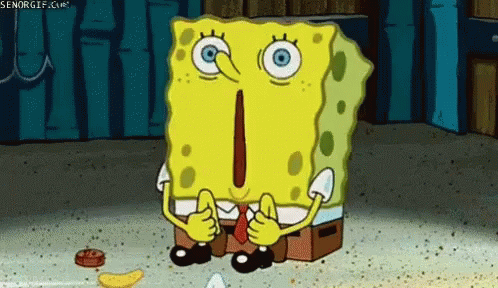
The hot topic that has been on everyone’s mind this school year is burnout and how to counteract it. Burnout is defined by the WHO as “a syndrome conceptualized as resulting from chronic workplace stress that has not been successfully managed.” The three factors that characterize burnout is: feelings of exhaustion, cynicism and emotional detachment, and reduced professional efficacy. Burnout can lead to depression, anxiety, and suicide. Although burnout has been mostly studied in healthcare professions, new studies have applied this concept to pharmacy schools as well. The prevalence of burnout in hospital pharmacists has been estimated at 60.8% (n=1077). Some studies show that women are more likely to experience the emotional exhaustion, while men are more likely to experience the disconnection from their job. The best way to counteract burnout is to diagnose it early and learn how to prevent it. The Maslach Burnout Inventory (MBI) is the standard diagnostic tool used to assess burnout. There is a version specifically catered to students, but none of the MBI are available to the public and the student version currently costs $50 dollars. If you’re interested in learning about prevention, APhA recently published a Well Being Resilience Report you can look at here. Now that everyone has a general concept of burnout, let’s delve into how the OSU College of Pharmacy is handling this problem.
When I examined burnout in the context of OSU pharmacy school, I specifically looked at the new curriculum and our extracurricular requirements along with expectations emphasized by professors, mentors, and professional pharmacists. COP had a lot of feedback from previous P3’s and P2’s about their new active learning curriculum during the student town hall and the dean’s town hall in the spring of 2019. As pharmacy council treasurer, I had the privilege last year to attend a meeting with Dr. McAuley, Dr. Porter, Dr. Kelley and the class liaisons to talk about this feedback. Dr. Porter had surveyed the P2 class about how we would change our curriculum, and my classmates had written about 63 pages worth of suggestions for improvements. Many of the comments, although very professional, had an underlying tone of frustration with the program. During this meeting we deliberated on why pharmacy students were excelling academically and improving yearly but they were still stressed. Pharmacy students in their P1 year were able to perform pharmacy-based skills that previous classes didn’t know how to perform until their P2 and P3 years. So where did all this stress originate?
/cdn.vox-cdn.com/uploads/chorus_image/image/49493993/this-is-fine.0.jpg)
While the academic aspects of pharmacy school are rigorous and demanding, I personally feel like my stress comes from external sources. As someone who wants to do a residency, I’ve experienced a lot of pressure to fit a specific mold from my mentors, professors, and from most panels I’ve gone to during professional hour. The advice I’ve received is to be active in the community, work a job at least 8 hours a week, have around three leadership positions in different organizations, have a research project that can be presented at mid-year while also getting good grades and networking with your professors and pharmacists for good recommendations. This checklist is required to be a competitive residency candidate and must be done while also juggling community and hospital IPPES and med rec rotations. Putting all these requirements together on top of being in class 30 hours a week and fitting study time in after school can be overwhelming. I believe that a lot of my fellow classmates, myself included, were experiencing what is now officially defined as burnout.
Due to all our feedback, the COP is currently working to integrate wellness into the classroom to improve our mental health. The COP has made efforts in the past to reduce depression and anxiety by having a counselor specifically for pharma cy students. Based on two surveys comparing students in 2014 and 2016, we have had less feelings of hopelessness, anxiety, and suicidal ideation since this change. Wellness initiatives are happening for each class as well. Dr. Kristen Mason has incorporated “Take 5” breaks into our curriculum where we could partake in activities ranging from deep breathing to chair yoga. Since the 2016 survey, we have had less data about the mental wellness of our students. We also implemented the new curriculum in 2016, so I encourage everyone to take this survey so we can have a better benchmark moving forward!
cy students. Based on two surveys comparing students in 2014 and 2016, we have had less feelings of hopelessness, anxiety, and suicidal ideation since this change. Wellness initiatives are happening for each class as well. Dr. Kristen Mason has incorporated “Take 5” breaks into our curriculum where we could partake in activities ranging from deep breathing to chair yoga. Since the 2016 survey, we have had less data about the mental wellness of our students. We also implemented the new curriculum in 2016, so I encourage everyone to take this survey so we can have a better benchmark moving forward!
I wanted to thank the college of pharmacy for recognizing that burnout is real and for the efforts they’re making towards having a better school-work-life balance. Having said that, I still think there is a long path ahead of us before we can see improvements. I’d love to hear your thoughts on the matter! What’s been your personal experience with burnout? Is it actually burnout that is plaguing our pharmacy students or is it something else entirely? What steps have you taken to stop feeling so emotionally drained and exhausted?
Kelly Usakoski
References:
Dr. McAuley and Dr. Porter provided class data
APhA well being resilience report
How the world looks at burnout
https://www-ncbi-nlm-nih-gov.proxy.lib.ohio-state.edu/pmc/articles/PMC5889935/
Statistics on burnout and definition
https://www-ncbi-nlm-nih-gov.proxy.lib.ohio-state.edu/pmc/articles/PMC6367114/
https://www.who.int/mental_health/evidence/burn-out/en/
Burnout differences between sexes
https://www.ncbi.nlm.nih.gov/pmc/articles/PMC3101180/pdf/1471-2458-11-240.pdf
Information on diagnostic tests
Images
https://allnurses.com/why-i-grateful-burning-out-t552931/
https://www.theverge.com/2016/5/5/11592622/this-is-fine-meme-comic